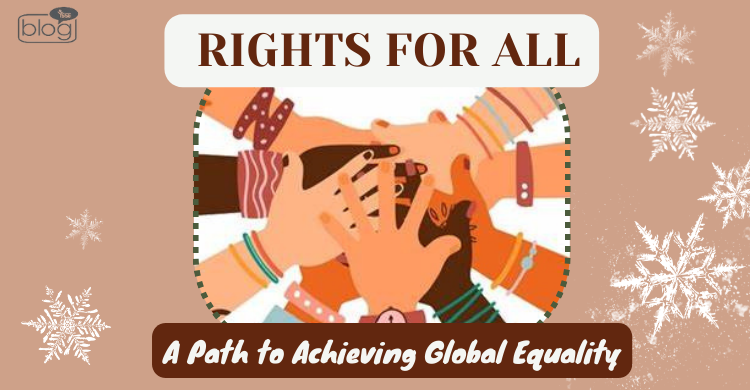Human rights are normally seen as the base of an equitable society, you know. The reason for these universal, inherent, and unalienable rights is to protect each person’s equality, freedom, and dignity. However, the fact that hundreds of millions of people worldwide continue to live in poverty and lack even the most fundamental rights is tragic. This continuous fight stems from societal hurdles, political persecution, and ingrained injustices; it is not a passing trend. It is obvious that in order to genuinely pursue global equality, we must unite, collaborate, and dismantle these systemic obstacles while promoting an inclusive atmosphere.
The Value of Human Rights
Regardless of gender, ethnicity, or origin, human rights should ensure that everyone enjoys the freedom and opportunities they are entitled to. 30 fundamental rights are outlined in important texts such as the 1948 Universal Declaration of Human Rights (UDHR), which was created by the UN. These include the rights to equality before the law, life, liberty, and education.
The problem is that many people still cannot afford these ideas. For marginalized populations, discrimination, a lack of resources, and political unrest present formidable obstacles that perpetuate the cycles of inequality and poverty.
Obstacles to International Equality
Economic Gap: There is a startling disparity between rich and poor countries. The richest 10% of the world’s population own an astounding 76% of its wealth, while the poorest half barely make ends meet with just 2%, according to the World Inequality Report 2022. Many people are left behind by this type of disparity in living conditions, healthcare, and education.
Gender Inequality: We must not overlook the pervasive prejudice against women and girls. They find it difficult to obtain education, obtain employment, or participate in political activities because of this systemic problem. Just take a look at UN Women’s statistics, which present a clear picture.
Racial Discrimination: Racial prejudice is another problem that affects access to services, employment markets, and legal systems. Global awareness of the pressing need for reform in these systemic challenges is rising as a result of movements like Black Lives Matter.
Political Oppression: Dissent is suppressed, and fundamental rights like freedom of expression and assembly are constantly in jeopardy in areas where authoritarian control is prevalent. Human rights breaches typically increase when political instability strikes.
Climate Crisis: Additionally, we must consider how environmental deterioration affects communities that are already at risk. Food insecurity, poor housing conditions, and a shortage of clean water are just a few of the serious problems that make matters worse.
A Path Forward for Achieving Global Equality
Enhancing Legal Structures: Creating robust national legal frameworks is a crucial aspect of international human rights legislation. Countries must stick to international norms and prosecute those who violate them. In the pursuit of justice, groups such as Human Rights Watch and Amnesty International are essential.
Empowering marginalized communities: Social and economic empowerment is the way out of this core of inequality. Initiatives such as microfinancing, skills training, and educational programs can further help vulnerable groups realize their vision of self-sufficiency.
Encouraging Gender Equality: Gender-specific measures are necessary to address systemic inequities; consider equal pay laws and ensure their enforcement. In addition, we need more women in leadership positions. Men’s involvement in the battle for gender equality can be greatly aided by initiatives such as HeForShe.
Promoting International Cooperation: Global concerns, such as the refugee crisis or climate change, require an international strategy. If significant change is to occur, governments, non-governmental organizations, and corporations must collaborate.
Developing Innovation and Technology: Through digital platforms, we can elevate underrepresented perspectives and leverage e-learning to reach distant groups. The leveling of the playing field can be achieved by technology.
Raising Awareness: We must launch initiatives that increase public awareness of discrimination. Empathy, cultural awareness, and, most importantly, human rights should be the main topics of media and education.
Individuals’ Role
Let’s face it, governments and organizations cannot solve this issue on their own. Everybody has a part to play. Commenting against injustice, supporting fair trade businesses, volunteering in social causes and political activism are the most palpable, visible ways of contributing for individuals.
Without a question, the path to equality is difficult. However, it’s the path ahead. We may strive for a more prosperous world by putting human rights first and resolving structural injustices. As citizens of one planet, we must stand united, purposefully pursuing human dignity for all. Let’s be the generation to actualize the vision of a global equality legacy, thus bequeathing future generations with fairness, justice, and compassion.
To read more blogs like this click here.
Writer,
Humyara Yeasmin
Intern, Content Writing Department,
YSSE.

